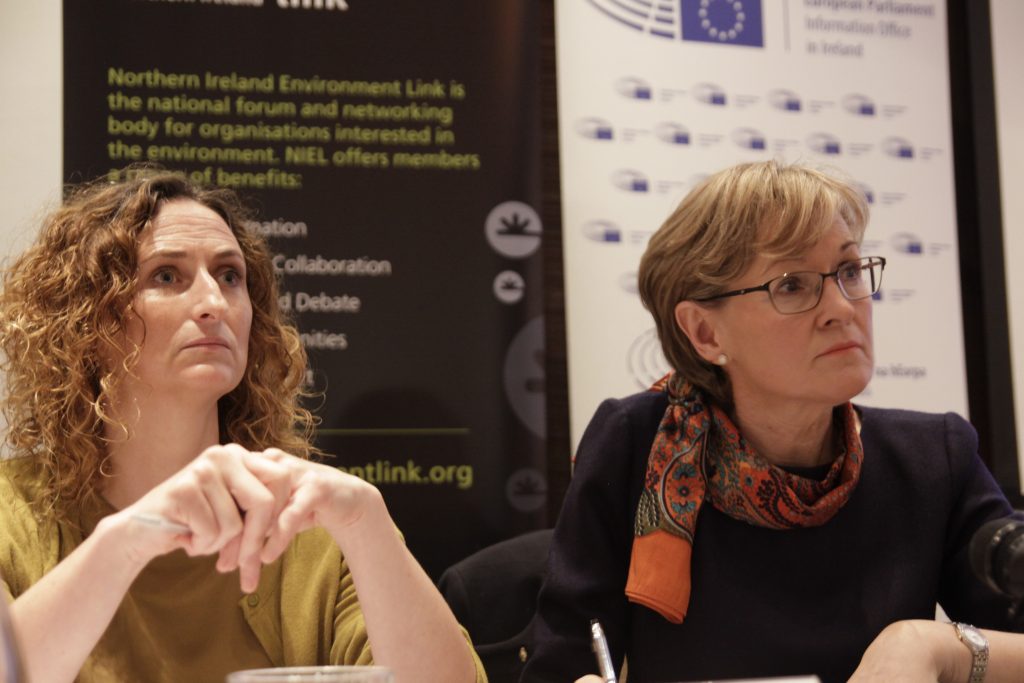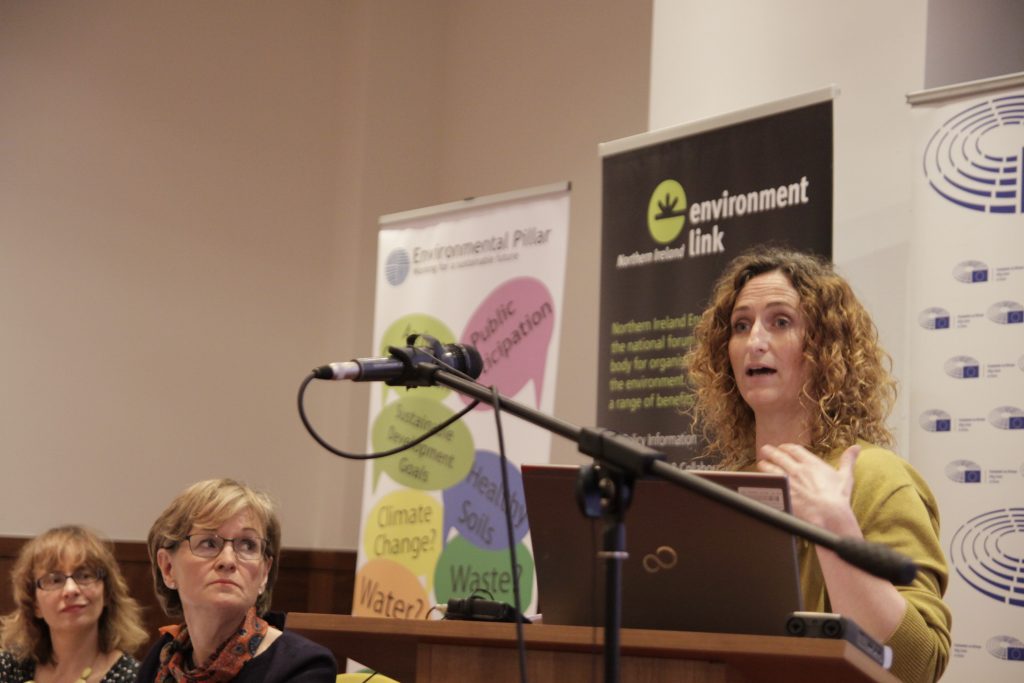Cross-border cooperation to protect environment across Ireland must not be “diluted” by Brexit, warn MEPs

June 16th, 2017
Crucial cross-border cooperation to protect the environment across the island of Ireland must not be “diluted” by Brexit, warned MEPs, NGOs and leading legal experts at a conference today.
The views were expressed at a conference in Dundalk today to examine the potential impacts on the Irish environment in a post-Brexit world and explore opportunities for new ways of working together on cross-border issues.
MEPs, legal experts and environmental groups outlined the potential weakening of legislative protection for nature as the single greatest environmental risk posed by Brexit.
Delegates at the conference particularly emphasised the importance of ensuring equivalency in environmental standards north and south of the Border.
The severity of this issue has been recognised at a European level, with the EU’s Brexit negotiator, Michel Barnier, recently highlighting the risk of environmental “dumping” if there is a divergence of standards between the UK and member states.
Principle Drivers of Protection
There are currently over 650 pieces of EU legislation in force to protect the environment, habitats, air quality, waste, food safety and a myriad of other areas.
They are the principal drivers for the vast majority of environmental protection in place in both the Republic of Ireland and Northern Ireland.
However, it is still unclear how environmental standards will be upheld in the future, with the British Government yet to set out the detail as to how high environmental standards will be achieved post-Brexit.
Opening the conference, Vice-President of the European Parliament, Mairead McGuinness emphasised that environmental standards “must not be diluted” by the UK’s exit from Europe.
“Brexit poses many challenges but the threat to environmental progress, which the EU has championed, is one of the most significant,” added the MEP for the Midlands–North-West.
“For Ireland, it is important to have the same high standards north and south of the border and a divergence of standards would be bad for citizens and for business.”
Avoid Hard Environmental Border
Environmental Pillar Co-ordinator, Michael Ewing, added that it was of paramount importance to avoid a hard ‘environmental border’ which would undermine decades of progress in addressing a range of environmental issues.
In the potential absence in the North of any oversight from the European Commission and the European Court of Justice, he emphasised that effective compliance mechanisms will be critical to resolve and manage cross-border environmental issues post-Brexit.
He also called for the island of Ireland to be recognised as a “single bio-geographic unit” and for the cross-border dimension of many environmental issues such as water quality, habitat and species loss to be addressed in the context of the upcoming Brexit negotiations.
“This event is key to giving us the chance to discuss the challenges and opportunities provided by Brexit and to articulate how these issues could be jointly approached on a North/South basis,” he concluded.
Northern Irish Environmental Link Chair, Patrick Casement, outlined examples of how both networks are currently working on a cross-border basis to protect and enhance the environment, such as the All-Island Pollinator Plan.
He stressed that environmental networks North and South of the border are dedicated to working in tandem to ensure that environmental standards on both sides of the border are maintained.
“The environment knows no border on our small island, and neither do the hundreds of terrestrial and marine species currently at risk of extinction on the island of Ireland. Any dilution of protection will place these species in further trouble,” he said.
Economy and Farming Issues
He added: “There is also a strong economic incentive to ensure protection of the environment. It is estimated that Europe’s network of protected nature sites currently provide economic benefits of €200 to €300 billion per year.”
He continued by highlighting the importance of cross-border co-operation to the economy: “All-Island Cooperation on Invasive Alien Species has been, and will be crucial. Invasive species were estimated to have cost the economies of Ireland and Northern Ireland a combined total of €261,517,445 in 2013.”
Sinn Fein MEP Lynn Boylan also pointed to the potential serious consequences for food regulation, outlining how Brexit may be “devastating” for Irish farmers “who pride themselves on the quality of the food they produce”.
“Farmers would face a flood of cheap food entering the market that in order to compete would force them to either reduce their own standards or leave the business altogether,” she added.
“It is on the island of Ireland’s interests that any deal struck with Britain and the EU protects our food and environmental standards.”
It was also noted by many delegates that the changed situation post-Brexit could offer new opportunities for the environmental sector across the island to work more closely together in line with a joint commitment to maintain and strengthen environmental standards.
The conference took place at the Crowne Plaza Hotel in Dundalk and was organised by European Parliament in partnership with the Environmental Pillar and the Northern Irish Environmental Link.
[x_author title=”About the Author”]









